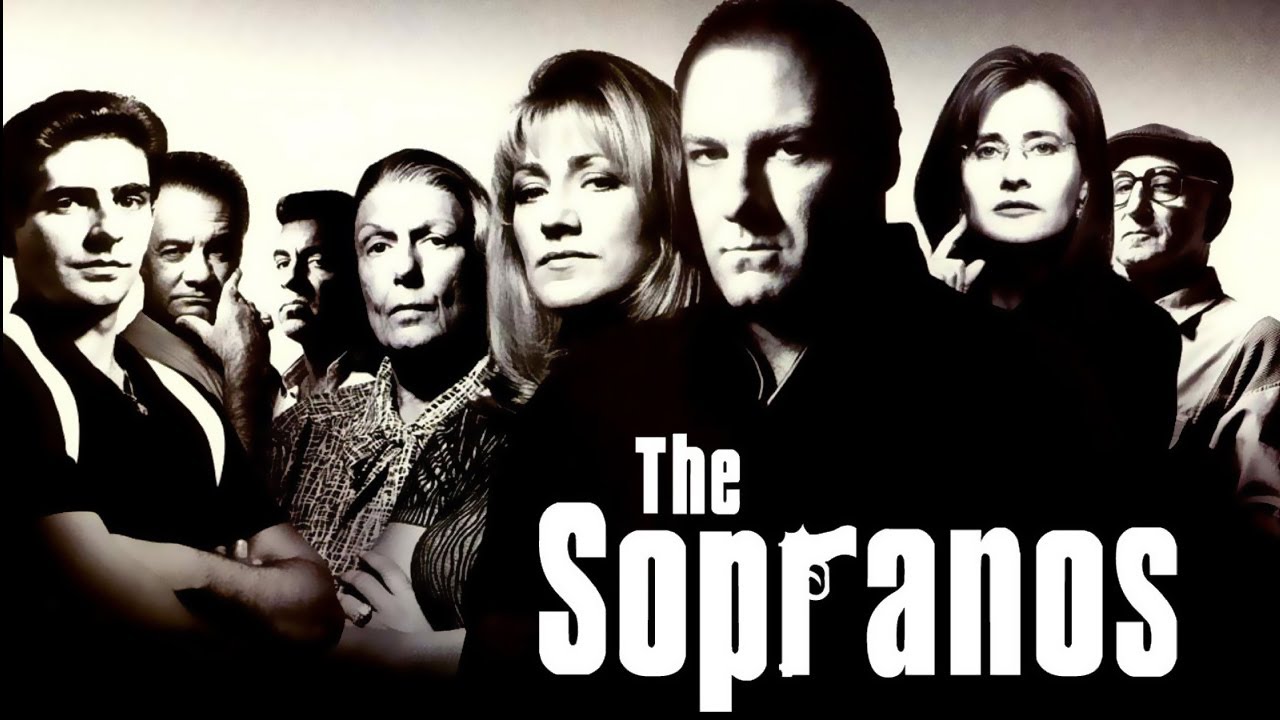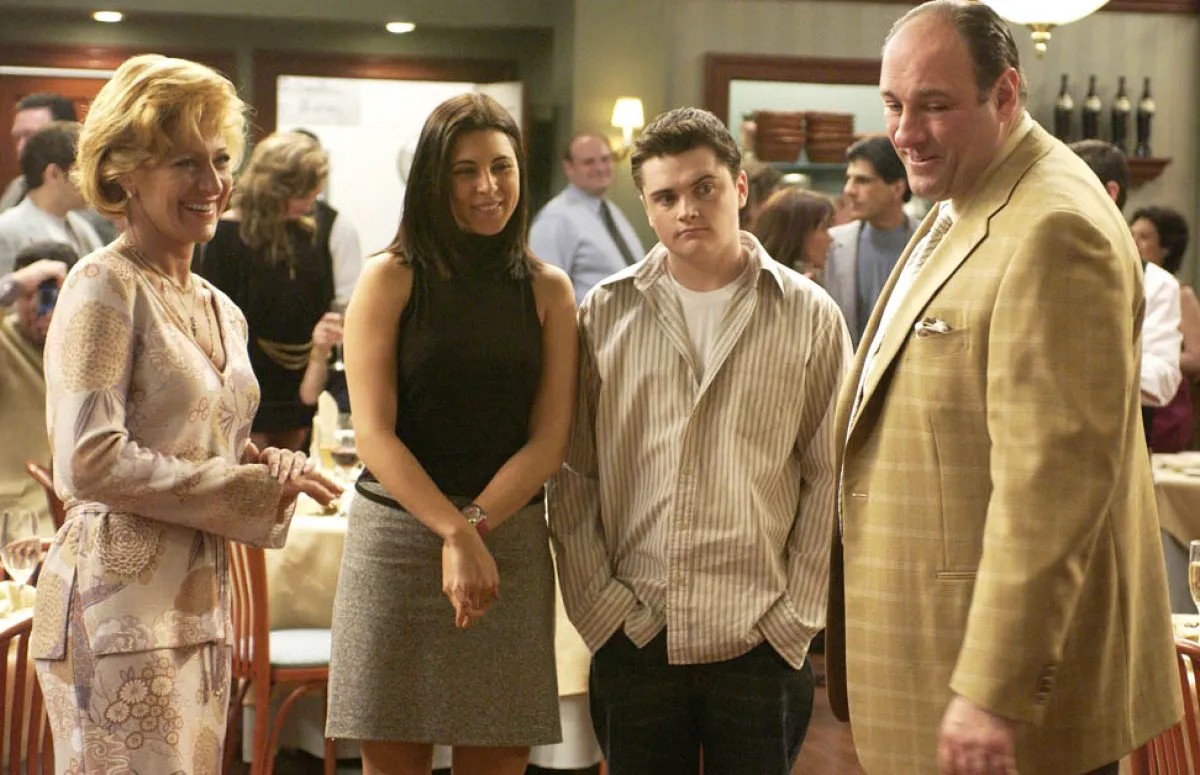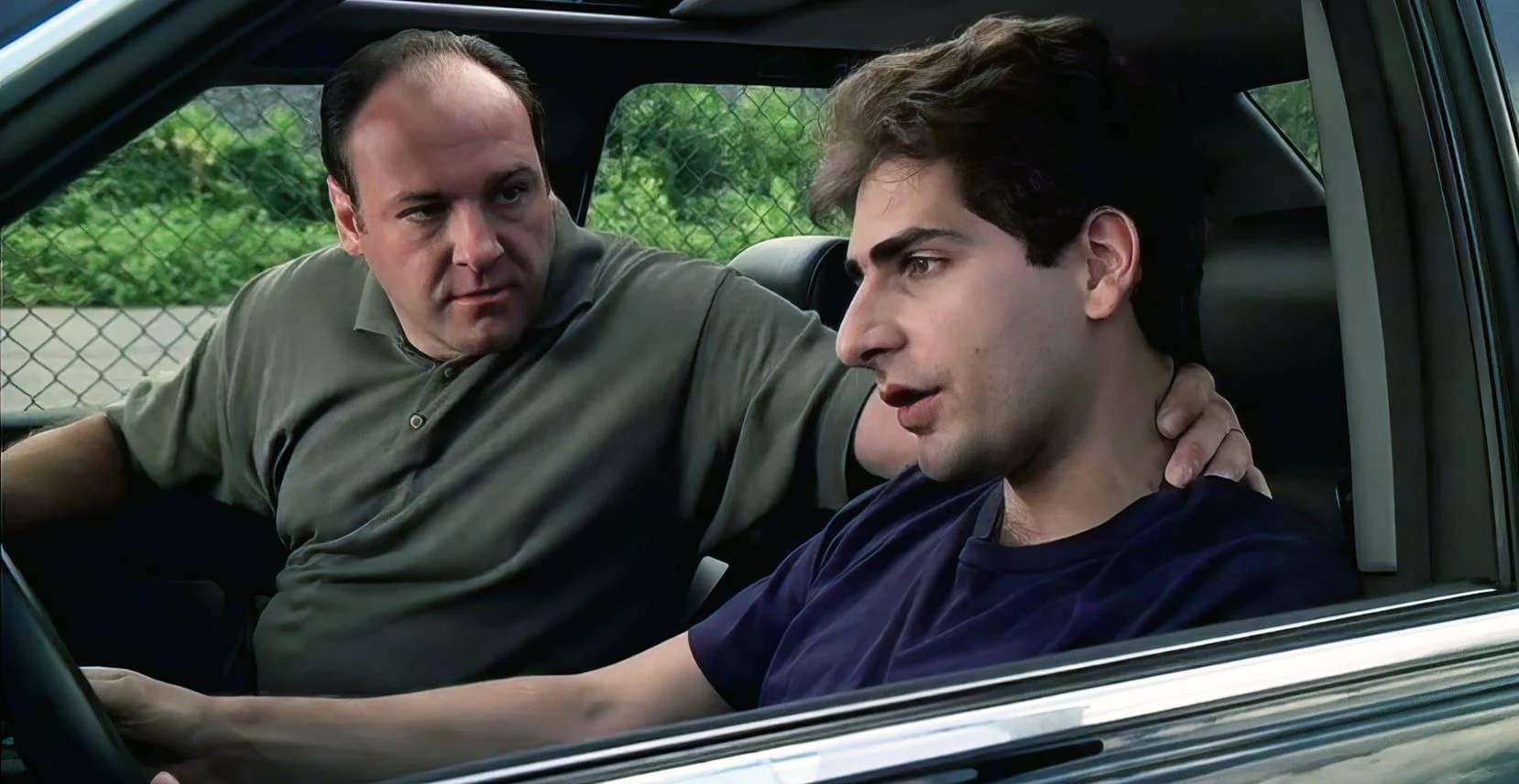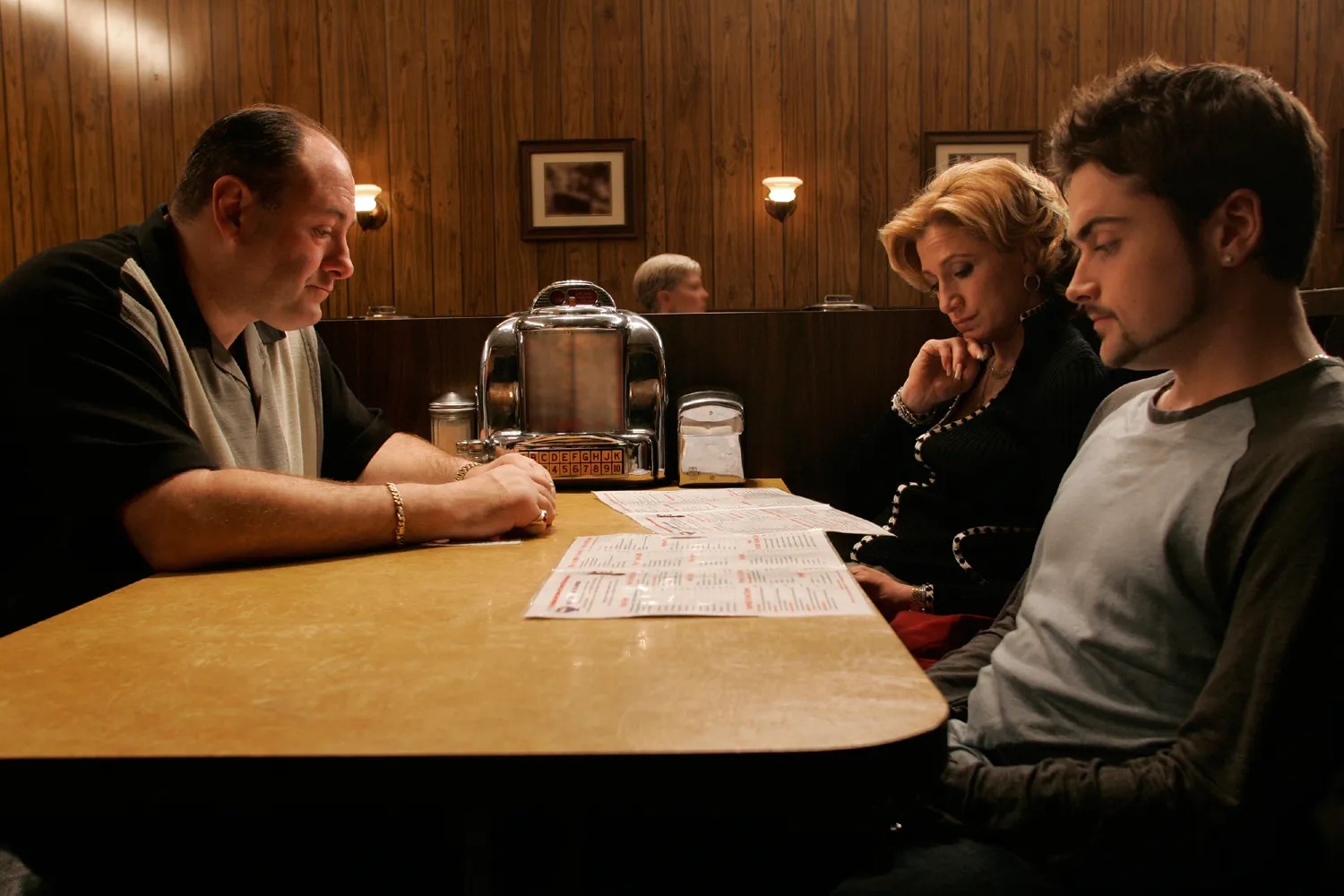The Sopranos (1999)

The Sopranos is a critically acclaimed American crime television series created by David Chase. The show originally aired from 1999 to 2007 and has since become a cultural phenomenon. The series revolves around Tony Soprano, an Italian-American mob boss from New Jersey, who struggles with balancing his responsibilities as the head of a criminal organization with his family life. This complex narrative explores themes of power, loyalty, family, and psychological turmoil, all set within the gritty world of organized crime.
At the heart of The Sopranos is Tony Soprano, played by James Gandolfini, a character who is both a ruthless mob boss and a family man trying to maintain control over his household. Tony’s struggles to manage the expectations of his wife, Carmela, and their two children, while simultaneously running a criminal empire, form the central conflict of the series. What makes the show so compelling is how it delves into Tony’s psyche, revealing his deep insecurities, anxieties, and fears, which are explored through his therapy sessions with Dr. Jennifer Melfi, portrayed by Lorraine Bracco.
The therapy sessions provide a unique narrative device for the show. Unlike traditional crime dramas that focus solely on action and criminal enterprises, The Sopranos offers viewers a window into Tony’s inner world. Through his sessions with Dr. Melfi, Tony confronts issues from his past, including his tumultuous relationship with his mother, Livia, and his struggles with his own identity as both a mobster and a father. These sessions allow the audience to witness Tony’s vulnerability, providing a deeper understanding of his character and the psychological toll of living a double life.

The series also explores the complex relationships Tony has with those around him, including his associates in the mob. The characters, such as Tony’s right-hand man, Paulie Walnuts, and his cousin, Christopher Moltisanti, are multifaceted and have their own personal struggles and moral conflicts. These characters are not simply criminals; they are individuals with hopes, fears, and desires, making them relatable and humanizing the often violent and morally ambiguous world they inhabit.

In addition to its rich character development, The Sopranos is known for its masterful storytelling and dark humor. The show blends moments of intense drama with subtle comedy, often using irony and satire to critique the world of organized crime and the American family. The series also examines the themes of loyalty, betrayal, and power, showing how these elements intersect in both the criminal world and personal relationships. The show’s writing and direction are sharp, with each episode building on the previous one to create a gripping narrative that keeps viewers engaged.

In conclusion, The Sopranos is a groundbreaking series that transcends the traditional crime genre by blending psychological drama with crime, family, and personal conflict. David Chase’s creation offers an in-depth look into the life of a mob boss, showing that beneath the surface of power and violence lies a man struggling with his own demons. The series has left a lasting legacy in television history, and its portrayal of Tony Soprano remains one of the most iconic characters in TV history, cementing The Sopranos as a must-watch for fans of compelling storytelling and complex character exploration.











